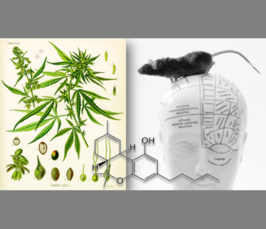Targeting the endogenous cannabinoid system (ECS) in schizophrenia: preclinical and clinical evidence
Seminar
- Date: Mar 15, 2018
- Time: 11:00 AM - 12:00 PM (Local Time Germany)
- Speaker: Vincenzo Micale
- Department of Biomedical and Biotechnological Sciences | University of Catania | Italy
- Location: Max Planck Institute of Psychiatry
- Room: Kraepelin Museum KRAE19
- Host: Carsten Wotjak
- Contact: wotjak@psych.mpg.de

The aetiopathology of SCZ is still partially understood and several hypotheses are mostly based on dopaminergic or glutamatergic dysfunction. However, it is widely assumed that SCZ should be a developmental disease that becomes evident in adulthood, with both genetic and environmental risk factors playing a role during embryogenesis [2]. Cannabis and endocannabinoids seem to play a pivotal role in the genesis of SCZ. Cannabis sativa is one of the most frequently abused substances among SCZ patients and adolescence use of Cannabis may pose a potential environmental risk to develop psychosis. Cannabis derivatives produce their CNS effect through activation of the endocannabinoid system (ECS), a recently discovered signaling system comprising specific receptors (the CB1 and CB2 receptors), their intrinsic lipid ligands (AEA and 2-AG) and the associated enzymatic machinery (transporters, biosynthetic and degradative enzymes). A variety of animal and human studies found a dysregulation of the ECS (both in term of cannabinoid receptors and endocannabinoid ligands) in psychosis. Modulation of this system by the main psychoactive component in cannabis, Δ9-tetrahydrocannabinol (THC), induces acute psychotic effects and cognitive impairment. However, the non-psychotropic, plant-derived cannabinoid agent cannabidiol (CBD) may have antipsychotic properties (Kucerova et al., 2014). Thus, due to the partial efficacy of actual antipsychotics, compounds which modulate this system may provide a novel therapeutic target for the treatment of schizophrenia.